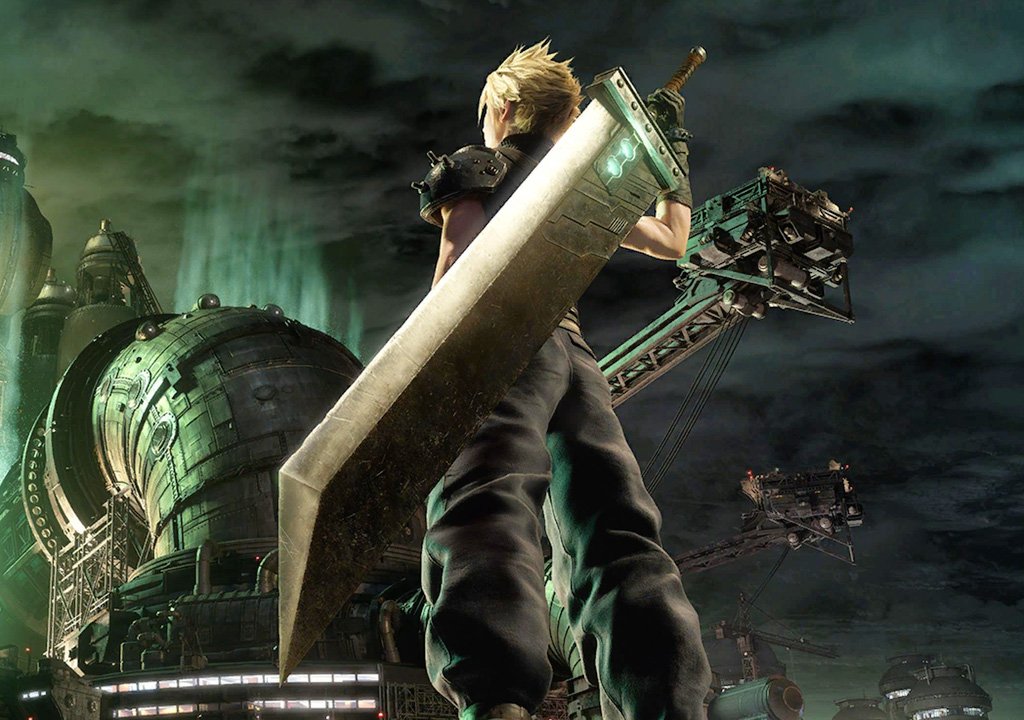Final Fantasy 7 Remake, Square Enix takes a leap into the future and the past together

The reasons for this success are clear: the remake was made by many of the same authors who had packaged the original Final Fantasy VII, although this time in different roles: Yoshinori Kitase as producer in place of Hironobu Sakakuchi, Tetsuya Nomura as director instead of just an artist and Nobuo Uematsu confirmed on the soundtrack.
From Super Nintendo to PlayStation
Final Fantasy VII was a complicated path: in Square's plans the game should have been a two-dimensional jRPG similar to Chrono Trigger and land on SNES, but Sony's adoption of the CD-ROM with the first PlayStati on and the enthusiasm around the novelty of polygonal graphics convinced the team to revolutionize the series.Of course, other determining factors also played in favor of this choice: on the one hand the considerably lower cost of the optical support compared to to the cartridges, on the other hand the large budget built thanks to the success of the previous productions of the Japanese studio.
A portentous mix, which made it possible to focus on content and quality as never before, and which gave life to an extremely ambitious project, on which from one hundred to one hundred and fifty people worked for about a year, and which cost an impressive 40 million dollars: a record at the time.
Square's efforts, however, have been amply rewarded: Final Fantasy VII has sold two million copies in the first three days of marketing in Japan and has also become a success in the USA and Europe, reaching over 10 million copies worldwide.
The basics of the remake
For years there was talk of a possible remake of Final Fantasy VII, even Square Enix thought of making it for PlayStation 2 but he gave up on the idea for a variety of reasons, including the commitment of developing subsequent episodes and the need to redesign the experience from scratch for new hardware.However, the issue arose again with PlayStation 3, especially due to the many requests from fans; and so the project began to take shape, albeit limited to an embryonic stage. In fact, it took the debut of PS4, at the end of 2013, for all the pieces of this complicated puzzle to fit together.
The official announcement of Final Fantasy VII Remake took place in 2015, together confirming that many key figures from the original game would take part in the development. As already mentioned, in this case Tetsuya Nomura played the role of director, Yoshinori Kitase that of producer and Nobuo Uematsu returned to realize the main musical theme of the game.
The idea behind the remake was not however that of simply redesigning the experience from a technical point of view and introducing some innovations on the gameplay front, but rather to substantially enrich the scenario and the narration, in order to give more space to many second-rate characters who deserved a better characterization. So an episodic structure was chosen instead of a single product.
The final ... result
So what is Final Fantasy VII Remake like and why it has earned a place in the list of the most significant games of 2020? Equipped with the connotations of a rebuild rather than a simple remake, the title modifies certain aspects of the story also significantly compared to the original version but without changing the narrative incipit.The protagonist of the adventure is the skilled mercenary Cloud Strife, who is hired by the Avalanche ecoterrorists to carry out an attack on the reactors of the city of Midgar, a metropolis built by the Shinra Corporation that draws nourishment from the life energy of the planet. Things, however, soon take an unexpected turn and Cloud finds himself involved in a complicated situation.
Although based only on the first five hours of the original campaign, Final Fantasy VII Remake keeps people busy for forty hours and this it gives a pretty clear idea of the enrichment and deepening work done by the development team. Several sequences have been appropriately reinterpreted, but it is above all the final stages of the game that propose surprising solutions ... for better or for worse.
In terms of mechanics, the combat system has been revolutionized in favor of a truly spectacular action solution, which however does not give up some strategic facets and allows you to completely customize the equipment of each party component, as well as its skills, in order to create warriors that perfectly fit our style.
From a technical and artistic point of view Square Enix has surpassed itself, recreating the scenarios in an incredible way while maintaining in some way the atmosphere that was breathed on the first PlayStation, and giving the characters a detailed and intriguing aspect. The comparison with the 1997 chibi-style models, net of nostalgia, is obviously merciless.
The final result was excellent: Final Fantasy VII Remake placed 3.5 million copies in the first three alone. days of marketing, ranking as one of the fastest-selling PS4 titles ever, and has taken home excellent ratings from the international press. Looking forward to the next episode ...